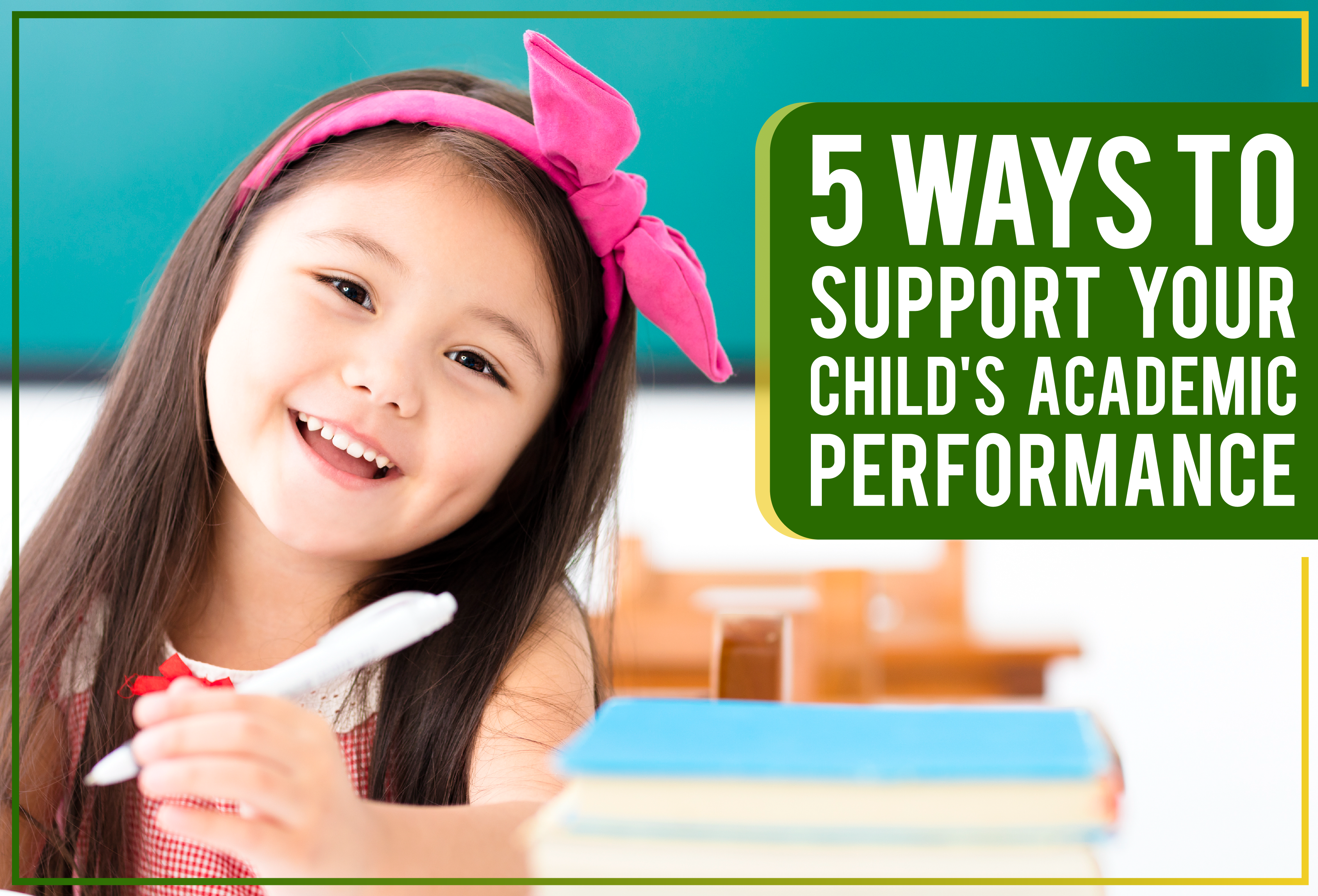5 Ways to Support Your Child's Academic Performance
Each child’s academic abilities vary. Some children learn fast, while others need a little more time to grasp new concepts and skills. But at the end of the day, most children can reach their true potential if they're given the help and support they need. As a parent, you play an essential role in your child's academic performance and in helping your little one excel in school.
How much time and energy should parents spend on supporting their children’s academic performance? What are the most effective strategies for helping kids succeed in school? Is your approach helping your child learn more effectively?
When it comes to supporting your child's academic performance, there is no one-size-fits-all solution. The key is finding what works best for your child's skills and learning style and your family's needs. Here, we will delve into some of the most helpful ways parents can support their kids' academic performance.
Create an environment in which learning feels safe and enjoyable. How does your child view learning? What is your little one’s perception of school? Does studying feel more like a chore instead of something they enjoy?
This is where setting up a comfortable study environment for your child can help tremendously. Ensure children have adequate space and time needed to be successful in their studies in the safety and comfort of home. We don’t want our kids to feel forced to study and learn because we’re telling them to. Rather, we want learning to be something our kids embrace because they know it can be fun and beneficial.
Establish a dedicated space in your home where your child can study and complete homework. This should be a space that is free of distractions and one in which kids feel comfortable.
Take time to help your child with homework. Whether or not your child reaches out to you for help, make sure you're readily available to assist if the need arises. Carve out time each day to check in with your child to find out how school is going. Study together and as you help your child prepare for quizzes and exams. Be on the lookout for any areas in which your child is struggling so you can offer additional assistance. Check your child’s homework and help them stay on task.
Monitor children’s screen time. Excessive screen time can be detrimental to your child's overall well-being. Spending too much time on electronic devices can affect how children function, grow, and learn. It can also result in insomnia, mood swings, and problems in school.
Be sure to limit the amount of time your child spends each day watching television and using electronic gadgets. Establish screen time rules in your home, and be sure to turn off electronics before bed to ensure that your child gets enough sleep and is adequately rested for the next day.
Be supportive but not pushy. While it’s important for parents to encourage children when it comes to academics, kids also need space to experiment with new strategies and approaches to their academics without feeling pressured or stressed out. As a parent, offer guidance instead of controlling how your child tackles academic tasks and homework assignments.
More importantly, let children have fun and enjoy what they're doing. Be patient, understanding, and supportive. Consider looking for ways to make learning more fun. You may incorporate games and other strategies to make studying something your child is more likely to look forward to.
Create goals together. Your child's academic goals should meet their unique needs, interests, and strengths and recognize their challenges. Instead of telling children what to do or expecting them to figure things out on their own, take time to sit down together, discuss, and create a list of tailored learning goals with your child.
For example, ask your child about their personal goals when it comes to academics. Does your child want to be part of the “high flyers” in class? Or does your child aspire to excel in one subject like math or science?
Keep in mind these goals are not necessarily just in nature but may also include overall life goals, such as hobbies or other things your child wishes to pursue outside of school hours, too!
Understanding how influential parents can be in supporting children’s academic performance can make all the difference in your child's school success. Set your little one on the path to academic success by following these helpful tips.
Here at Mrs. Myers' Reading Room, our goal is to help children become happier, more successful, and confident learners, regardless of their current reading level. Visit us to learn more.





